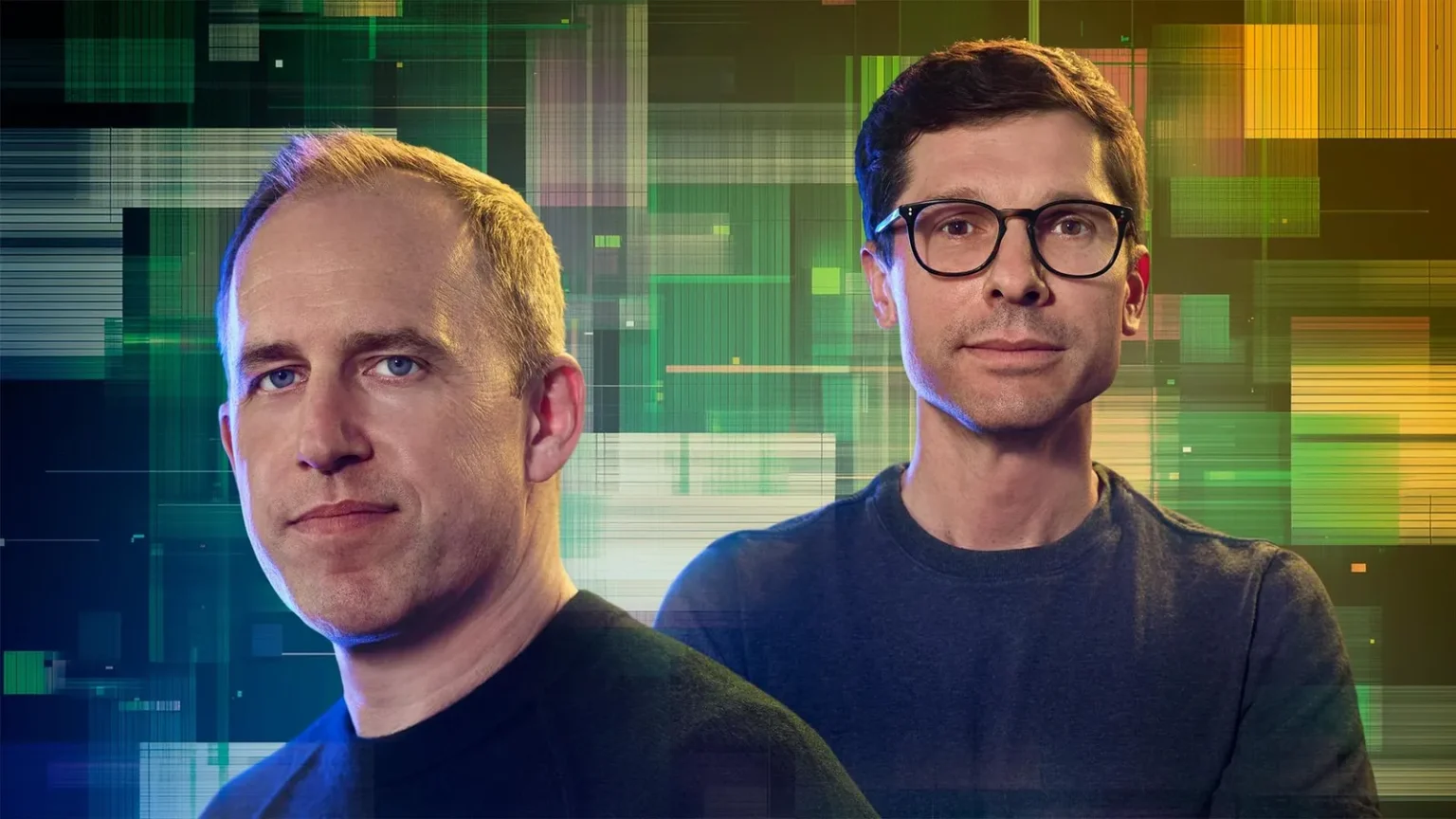The Alphorn-Blowing Silicon Valley Veterans Revolutionizing Customer Service with AI
In a spacious San Francisco conference room, Bret Taylor, the CEO of Sierra, is blowing into an 11-and-a-half-foot alphorn made of California redwood. The sound is initially wobbly before finding its resonance—a perfect metaphor for the $10 billion AI customer service startup he’s building with co-founder Clay Bavor. This unusual corporate ritual of blowing the alphorn to celebrate new customers represents Sierra’s determination to stand apart in the crowded AI enterprise space. “It’s so awkward and goofy that it’s just utterly perfect,” Taylor explains. The instrument isn’t just for show—they’ve blown it “hundreds” of times, marking impressive growth for a company barely a year old. Sierra has attracted high-profile clients including The North Face, Rivian, ADT, and SiriusXM, with a deliberate focus on large enterprises. More than half of Sierra’s customers generate revenue exceeding $1 billion, and the company is on track to surpass $100 million in annualized revenue by January 2025, an extraordinary trajectory that has attracted investments from elite firms like Sequoia, Benchmark, and Thrive Capital.
Taylor and Bavor represent an increasingly rare breed in today’s startup ecosystem: seasoned Silicon Valley veterans with decades of experience at tech’s most influential companies. Taylor’s resume reads like a tour through tech history—co-creator of Google Maps, CTO of Facebook (where he helped develop the “Like” button), Twitter board chairman during Elon Musk’s contentious takeover, Salesforce co-CEO alongside Marc Benioff, and now OpenAI’s board chairman. Bavor spent 18 years at Google, leading product teams for Gmail, Docs, and Drive before pioneering the company’s virtual and augmented reality initiatives. The pair first met at Google as young associate project managers hired by Marissa Mayer. Though their career paths diverged, they reconnected over lunch in early 2023, shortly after ChatGPT’s release, which Taylor describes as shuffling “the proverbial deck of cards” in the tech industry. That lunch, featuring a grilled whole branzino at an upscale Palo Alto restaurant, birthed the idea for an AI startup, though the specific direction remained unclear. After consulting numerous CEOs about their business challenges, a conversation with Grab CEO Anthony Tan about customer service difficulties across Southeast Asia’s language barriers provided the clarity they sought. “It was one of those conversations where it just crystallizes in your head,” Taylor recalled.
Sierra’s AI agents tackle the knotty customer service issues that traditionally required either frustrating chatbot interactions or human representatives—like returning products, canceling subscriptions, or resolving billing disputes. But Taylor and Bavor’s vision extends far beyond complaint handling. They believe AI agents will eventually become the primary interface between businesses and customers across all channels—text, phone, apps, and messaging platforms. These agents will function as personal concierges that remember past conversations and make suggestions based on individual preferences. “One of the promises of the internet was personalization, but the only full manifestation of that we’ve really seen is very targeted ads,” noted Bavor, without acknowledging the irony coming from a long-time Google executive. The approach is already showing impressive results: Rocket Mortgage CEO Varun Krishna reports that Sierra-powered agents can refinance a mortgage in about 30 minutes instead of “several hours over multiple days,” while Ramp CEO Eric Glyman says Sierra handles 90% of support requests through their app without human intervention. This effectiveness is crucial because Sierra only charges clients when its bots completely resolve tasks on their own—an “outcomes-based” business model that aligns incentives for continuous improvement.
Sierra’s latest product announcements reveal their ambitious roadmap for making agents more versatile and proactive. New features include integration with ChatGPT, allowing companies’ agents to answer customer queries directly through OpenAI’s popular chatbot; LiveAssist, which functions as an AI copilot for human call center workers by pulling up answers from FAQs or recommending next steps in real time; and perhaps most significantly, Agent Data Platform, which gives agents “memory” of past customer conversations across multiple channels combined with internal company data. “It’s starting a conversation on second or third base, as opposed to from scratch,” Bavor explained. The company is also investing heavily in voice technologies, working with model makers including Google, OpenAI, and ElevenLabs to create distinctive voice personas for brands—they’ve even designated an engineer as their unofficial “voice sommelier.” Despite these advances, challenges remain. During a live demonstration for Forbes, a Sierra-powered SiriusXM agent became confused when the caller suddenly yelled “Don’t touch that!” mid-sentence, incorrectly classifying it as an interaction-ending interruption. SiriusXM COO Wayne Thorsen was forgiving: “People make mistakes too,” he said, though he acknowledged that some customers still flatly refuse to engage with AI and demand human representatives—”That’s going to be a problem for a while.”
The founders’ relentless focus on quality has impressed investors and board members. Sequoia partner Ravi Gupta notes that they hold board meetings every six weeks rather than quarterly, beginning each session with a list of things that need fixing. Even competitors acknowledge Sierra’s sound strategy in courting large enterprises, though some question whether companies will ultimately entrust such crucial customer interactions to an external vendor rather than developing in-house solutions. “The big question is durability,” said one rival CEO. “I foresee a great philosophical war between us and Sierra, and it’s going to be really fun to see who the market chooses.” The stakes are high in a sector that represents more than $12 billion in 2024 and is projected to reach nearly $50 billion by 2030. This potential has attracted numerous competitors, including the $1.5 billion-valued Decagon, New Jersey-based Kustomer, and established player Intercom. Even Meta, led by Taylor’s former boss Mark Zuckerberg, is competing in the space, though Zuckerberg says they focus more on small businesses while Sierra targets larger enterprises. The two executives still maintain a friendly relationship, meeting for dinner or walks at conferences. “The consumer taste and the enterprise taste and the technical taste—all of that, I think, go together to build something good here,” Zuckerberg said about Taylor, though he notably hasn’t tried to recruit him during Meta’s recent AI talent acquisition spree.
Taylor’s role as chairman of OpenAI adds another dimension to Sierra’s position in the AI landscape. When offered the job after Sam Altman’s brief but dramatic ouster in late 2023, Taylor consulted his wife first and Bavor second before accepting. “To some degree, we probably wouldn’t have started Sierra if not for OpenAI,” Taylor reflected. “It’s just such an important organization, and we felt indebted to it—for creating the market that we operate in with the GPT models and ChatGPT.” He carefully distinguishes between his roles at both organizations: at Sierra, he’s primarily focused on building products, while at OpenAI, he’s more involved in “inventing that future” and learning from Altman’s “degree of ambition” in the pursuit of artificial general intelligence. Looking ahead, Taylor envisions a future where not only will every company have AI agents, but consumers will have their own agents acting on their behalf—leading to scenarios where agents interact with other agents. This vision comes with challenges, including the uncomfortable prospect of job displacement for call center workers and the potential for agent overload if companies bombard consumers with constant proactive outreach. Sierra aims to help clients find the right balance, making experiences “personal and proactive, but not pushy.” Taylor believes AI can achieve this nuance: “If we’re doing our job, you’re not being spammed.” As Sierra’s alphorn continues to sound for new customer celebrations, the founders know that scaling this vision might be harder than scaling the mountain range that inspired their company’s name.




